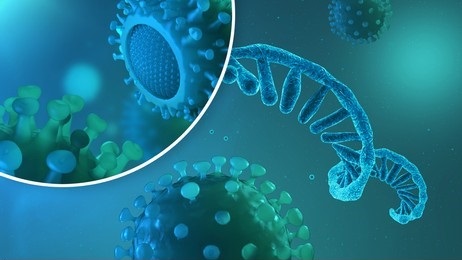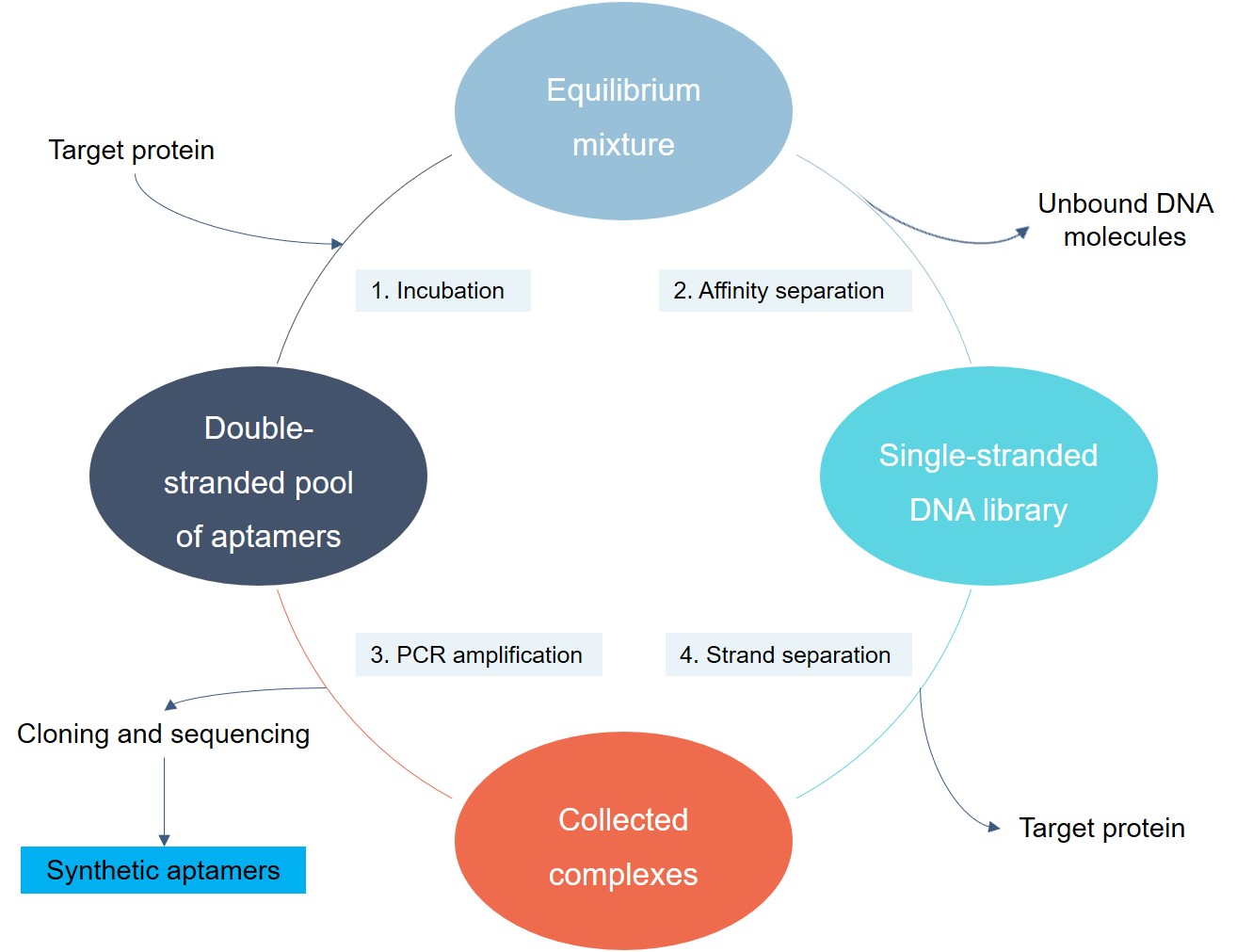Nucleic acid aptamers are a class of single-stranded DNA or RNA around 25-90 bp in length, and these oligonucleotides form a variety of secondary or tertiary structures through hydrogen bonding between base molecules, which bind with high affinity and specificity to the target. As a molecular recognition element, aptamers can recognize both proteins, nucleic acids, and other single molecules, as well as macromolecular complexes such as cell fragments, cells, bacteria, parasites, viruses, and others.

Aptamers are characterized by high affinity, high specificity, high resolution, a wide range of targets, a simple screening process, etc. Lifeasible has introduced nucleic acid aptamers to serve you in the detection of plant pathogens with an eye to the characteristics of this new class of molecular recognition elements. Compared with traditional antibodies, nucleic acid aptamers are thermally stable, have a long shelf life, are non-immunogenic, have uniform activity, can be denatured and revertible, and do not require an animal as a reactor for production.
The development of in vitro selection and amplification techniques has enabled the discovery of specific nucleic acid sequences, which have high affinity and specificity for various heterogeneous target molecules. This technique of obtaining oligonucleotide ligands is known as the systematic evolution of ligands by exponential enrichment (SELEX) process, by which aptamers are selected as substitutes for antibodies.
 Figure 1. Schematic representation of aptamer selection procedure.
Figure 1. Schematic representation of aptamer selection procedure.
After screening for nucleic acid aptamers of plant pathogens, we further convert the detection signal into a recognizable output signal. Nucleic acid aptamers can be signaled by biosensors. We immobilize the nucleic acid aptamer on a biosensor substrate and use sensing technology to convert chemical, physical, electrical, or optical changes during adsorption into a detectable signal.
Although aptamer biosensors still have many limitations in detecting plant pathogens, their adaptability and ability to bind to nanomaterials such as gold nanoparticles is a good choice for plant pathogen detection. Lifeasible is also actively applying some more efficient SELEX technologies, including the AEGIS-SELEX technology that combines the artificially expanded genetic information system (AEGIS) with SELEX, which increases the sequence diversity of aptamers and greatly expands the aptamers' spatial structure of the aptamers. Please feel free to contact us for customized nucleic acid aptamers.
Lifeasible has established a one-stop service platform for plants. In addition to obtaining customized solutions for plant genetic engineering, customers can also conduct follow-up analysis and research on plants through our analysis platform. The analytical services we provide include but are not limited to the following:
Get Latest Lifeasible News and Updates Directly to Your Inbox
Adaptive Evolutionary Mechanism of Plants
February 28, 2025
Unraveling Cotton Development: Insights from Multi-Omics Studies
February 27, 2025